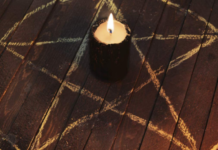Ostara is one of the eight major sabbats or holy days of the Wiccan Wheel of the Year or calendar and is one of the four Lesser Feasts. It is celebrated on the vernal equinox, which is around March 20-21st in the northern hemisphere, and around September 21-22 in the southern hemisphere. This year it falls on the 20th where I live in the northern hemisphere.
The word for this festival come from the name of the Teutonic goddess of spring and the dawn. It is more traditionally spelled ‘Oestre’, or ‘Oestare’, though neo-pagans today usually use the ‘Ostara’ spelling found here. It is from this root that Christianity later derived its word for ‘Easter’, and many of the customs we associate with that holiday today.
As there are three harvests, the first beginning at Lughnassadh after Midsummer, continuing through Mabon and culminating at Samhain, there are also three fertility festivals on the Wheel. Ostara is the second, with Imbolg being the first, and Beltane being the grande finale of the saga.
The vernal equinox physically demonstrates a balance of light and dark in the day, and this theme of balance returning is evident in our celebration, along with the knowledge that the pendulum is about to swing in the other direction, bringing more light and growth in the months to come.
The young God, who was reborn at Yule and grew to a budding youth at Imbolg, is now a young man. The Goddess and God are both youthful and vibrant with Their potential, and budding fertility.
Symbols of fertility abound on this day, eggs being one of the most potent symbols. Eggs are painted in vibrant colours, or inscribed with messages to manifest in the coming months. The hare or rabbit are other obvious symbols of fertility, representing Oestare’s more well-known familiars.
The altar is often decorated with budding flowers, eggs, seasonal fruits and other symbols of renewal. Seeds for planting may be blessed on this day and formal Ostara rituals and pageantry are practised by many covens and solitaries.
It is a time of growth and expectation.
Happy Ostara!
First published on Suite101.com on 20 March 2006. (Unfortunately.)








